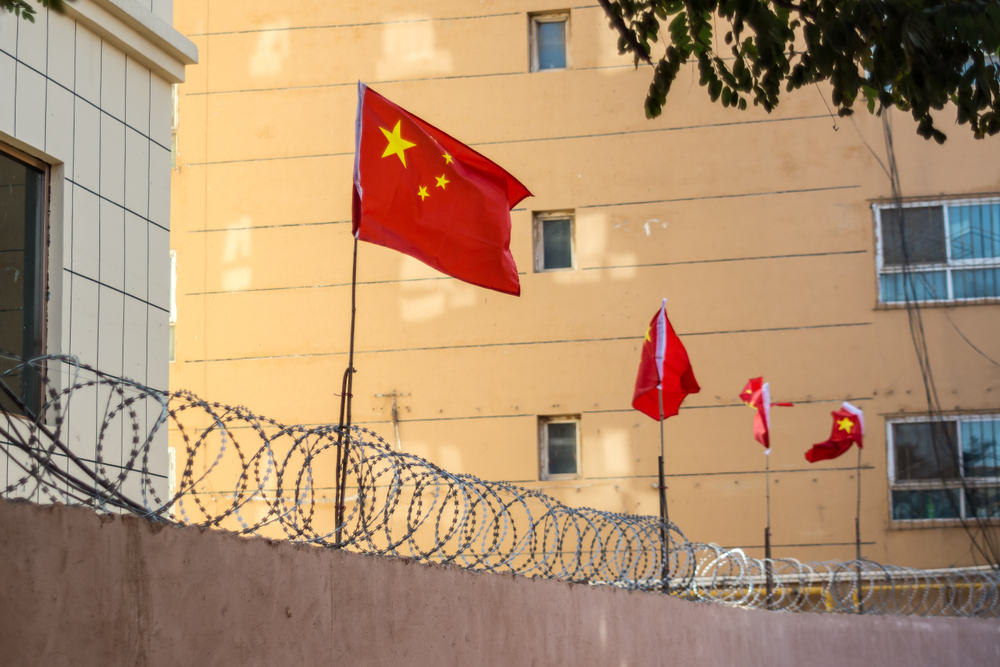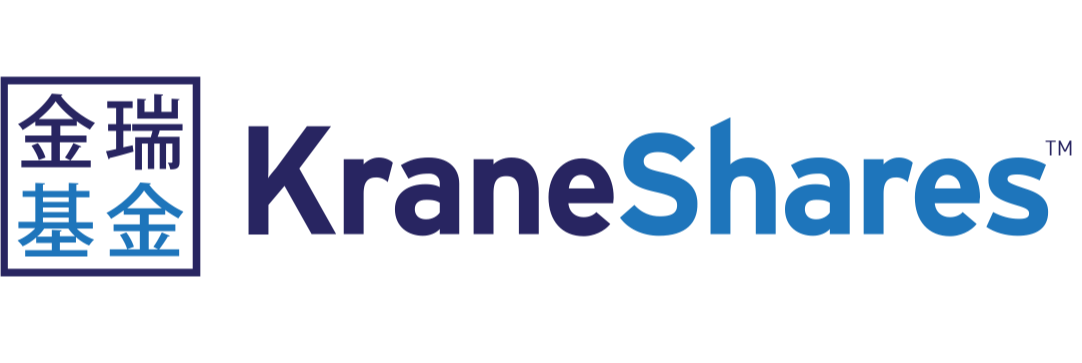With China already underweight in socially responsible (SRI) emerging market indices, how long will it be until the Chinese state’s anti-human rights actions pose an existential risk to China ESG ETFs? This question will be increasingly in focus as the government looks to tighten its grip on tech companies and the world comes to rely more heavily on Chinese manufacturing to power the clean energy transition.
Examinations of ESG standards often struggle with what these mean to different people in different places. For instance, in the US, the focus is more heavily on social issues like equality and representation while in Europe, environmental issues take precedence.
At a glance, China’s ESG potential seems to favour the European, climate-focused approach. Despite its manufacturing activity and population size making it the world’s largest polluter, the country’s efforts to reduce its emissions have outstripped any western country in terms of scale.
For instance, following a peak in deaths related to the country’s air pollution in 2013, by 2020 these deaths were reduced to pre-1990 levels. Likewise, following a collective effort, 74 Chinese cities reduced their particulate count by an average of 33% in just four years from 2013, according to research published in The Lancet Planetary Health journal.
While these improvements come from a fairly low basis – with transitions away from high-polluting domestic activities like woodfires for cooking – they are just a recent example of ambitious Chinese environmental policy. These moves give investors confidence when the country makes pledges such as carbon neutrality by 2060, and these kinds of promises are what is giving Chinese securities ESG staying power.
An area where China will continue struggling is on the social element of ESG. While some would argue that ESG standards are entirely relative to different regions, it is reasonable to assume that western investors do not outright abandon their western moral norms when allocating assets outside of their home country. Also, while less exacting than SRI criteria, investor understanding of ESG should maintain some moral baseline.
Of course, we should avoid being overly simplistic. Western countries have their own controversies and it is a dangerous game conflating state policy with the actions of individual companies. However, the situation in China currently distinguishes itself in two ways.
First, the grounds for condemning the ongoing situation in Xinjiang are particularly strong with various countries not just sanctioning Chinese officials but now officially declaring the situation a genocide – including the US State Department and the UK government last week. Second, and crucially, Chinese companies have far less autonomy than their western counterparts.
Chinese big tech too powerful for its own good
Whereas US companies continued rolling out green initiatives, such as Amazon’s solar acquisitions and electric vehicle fleet, even as President Donald Trump withdrew US participation in the Paris Agreement, Chinese companies' activities are increasingly being brought into the Communist Party’s (CCP) fold, according to Bloomberg.
One well-documented example of public-private collaboration on political policy was Tencent’s data sharing with the CCP from 2019. In this instance, the company was asked to supply security forces with the data of over a billion users from its WeChat and QQ platforms.
According to Dutch hacker Victor Gevers, data on the conversations, payments and travel habits of millions of Uyghur Muslims were passed onto Chinese police and used to censor and track Uyghurs both within the country and overseas.
Whether forced into complicity or willingly complying, Sarah Cook, research director for China, Taiwan and Hong Kong at Freedom House, said Tencent’s actions undoubtedly contributed to the torture and arrest of innocent people.
“Anyone concerned about human rights, electoral interference by foreign powers or privacy violations by tech giants should divest from the firm, including retirement funds,” Cook stressed. “Socially responsible investment plans should exclude Tencent from their portfolios if they have not already.”
Products tracking the more stringent MSCI EM SRI index already exclude Tencent. However, ESG strategies such as the KraneShares MSCI China ESG Leaders UCITS ETF (KESG) and UBS ETF MSCI China Universal UCITS ETF (CNSG) both feature Tencent among their top holdings.
The reasons given for these kinds of appearances in ESG products are usually fourfold. Either they are the least bad of the options on offer; it is hard to remove individual securities from an underlying index; they perform well on a particular area of ESG; and areas of concern can be addressed via engagement with individual companies.
The first two points were somewhat undermined in January of this year during an initial assessment of UBS by the regulator, National Contact Point (NCP) of Switzerland. The NCP found that among CNSG’s holdings was Hikvision, a subsidiary of a Chinese military conglomerate and one of the principal suppliers and operators of surveillance equipment used to spy on Uyghurs in Xinjiang province.
Not only does this show very ‘bad apples’ can be found in ESG baskets, but Hikvision was removed from all MSCI indices effective 5 January, showing contentious holdings can be removed from indices when enough resistance is offered.
On the third reason – performing well on an area of ESG – we can assume Tencent has a prominent role in indices such as the MSCI China ESG Universal 5% Issuer Capped index for the same reason as companies like Alibaba: they are large-cap tech firms with relatively low carbon footprints versus the scale of their operations.
It is on the fourth justification – the possibility of engagement – we should be most concerned. Whereas shareholders and asset managers can usually pressure companies into some form of action, as seen with Shell on its controversies in Nigeria and Boohoo with its garment suppliers, there is a real fear that any growth in the state’s control over Chinese big tech may leave private stakeholders with limited influence.
Following Jack Ma’s comparison of Chinese state lenders to pawnbrokers last October, Chinese authorities responded to the former Alibaba chairman’s comments by suspending the Ant Group initial public offering (IPO).
Ma is something of a tinderbox. Often outspoken against the way the Chinese state conducts business, he helps the tension to resurface between the state’s desire to celebrate the success of Chinese big tech and its urge to control companies’ growing power and leverage their capabilities for its own ends.
Unfortunately, the suspension of the Ant IPO last year appears to have just been the start of the CCP’s latest offensive against big tech autonomy.
Now, offering an olive branch to the state once again, Tencent founder Pony Ma is calling for tighter regulation of his own company as well as eCommerce and ride-hailing services more generally. Meanwhile, anticipating state encroachment, Ma remains in hiding, while Simon Hu and Colin Huang have stepped down from their positions as heads of Ant Group and Pinduoduo, respectively.
The tech companies we have mentioned span across social media, eCommerce, gaming, online payments and media. The expectation is that the state’s next move will be to impose controls over these firms’ data, which could amount to nationalisation of databases covering the habits of over a billion people.
Though laws currently exist meaning Chinese personal data belongs to individuals, this obstacle only exists because the CCP allows it to. According to Robin Zhu, senior analyst, managing director of China Internet at AB Bernstein, uncertainty over which types of data the state could demand have weighed on Chinese big tech shares. For now, the state's initial effort to encourage giants such as Alibaba and Tencent to share data appears to be being led by the People's Bank of China.
Whether this data handover does occur and whether it is used to track Uyghur Muslims as Tencent’s data was previously, are two ongoing concerns investors need to keep in mind when investing in China ESG ETFs. Chinese big tech may soon be forced into being complicit in unethical activities and face possible regulatory retaliation from western authorities.
Does clean energy have a clean conscience?
Another angle for ESG-minded investors to be mindful of is exposure to Xinjiang supply chains while trying to target the clean energy megatrend. Though clean energy thematic ETFs are not titled as ESG products, they usually score well on ESG criteria versus traditional energy exposures and often attract a similar investment audience.
An issue with these products is that they increasingly rely on companies operating out of the Xinjiang autonomous zone and thus, according to US public policy think-tank, the American Enterprise Institute, may be at risk of using forced Uyghur labour.
An example of such a product is Europe’s most popular thematic ETF, the iShares Global Clean Energy UCITS ETF (INRG), whose underlying index has for some time held Daqo New Energy, a company named by US senators Marco Rubio and Jeff Merkley for sourcing polysilicon from the Xinjiang region.
Furthermore, in a recent index rebalance, INRG added two clean energy companies which are majority-owned by the Chinese state – China Longyuan and Goldwind – with the latter manufacturing windfarm components in Xinjiang.
However, the problem goes well beyond the companies operating directly out of Xinjiang, and in fact covers many firms further down the supply chain. According to Xiaoting Wang, BloombergNEF solar analyst, Xinjiang accounts for almost half of the global production of polysilicon, a vital component in solar panels. Meanwhile, the US produces less than 5% of the world’s solar-grade polysilicon.
The costs of transitioning Xinjiang’s share of polysilicon production onto other regions would be considerable and would reflect in the returns of public and private stakeholders. Offering a small taste of this were natural disasters and coronavirus disruption in 2020, which saw the material’s price by 65% last autumn, according to IHS Markit.
Despite this, solar developers are aware of the political risks of relying on components from Xinjiang. The Solar Energy Industries Association in November began encouraging companies to shift their supply chains and by February 2020, almost 200 agreed to exclude forced labour by tracing the source of their raw materials.
Derek Scissors, resident scholar at the AEI, said it seems impossible to imagine successfully engaging on these issues, and added Chinese companies will only be able to relocate operations to a point deemed acceptable by the central government.
Scissors added on companies’ ESG compatibility in their current state: “ESG is supposed to prioritise factors other than returns, and solar equipment can be made somewhere with far better conditions, if at a higher price.
“It is not reasonable or ethical to expose investors to Xinjiang repression while claiming to be ESG-compatible.”
The takeaway on Uyghur genocide complicity and ESG
There may be a lack of clarity on what ESG means but the industry cannot bias screens towards one set of criteria and completely neglect another – in this case the social element. At present, two of the three China ESG ETFs available to European investors are given Trackinsight's lowest rating for sustainability, while the third is scored as 'far to mediocre'.
ESG indexers and ETF issuers should probably align their mandates more closely with the SRI model and be underweight China until the situation in Xinjiang is resolved. Alternatively, products offering ethical tilts to China exposure should be labelled purely as ‘climate’ or ‘environment’ strategies so as not to mislead investors that there are less bad actors on E, S and G criteria.
If the scenarios discussed continue to play out, those staying in China ESG ETFs should prepare to see their exposure to the Uyghur genocide intensify and could potentially also suffer political risks as a consequence.
UBS Asset Management, BlackRock and MSCI declined to comment.
Further reading







